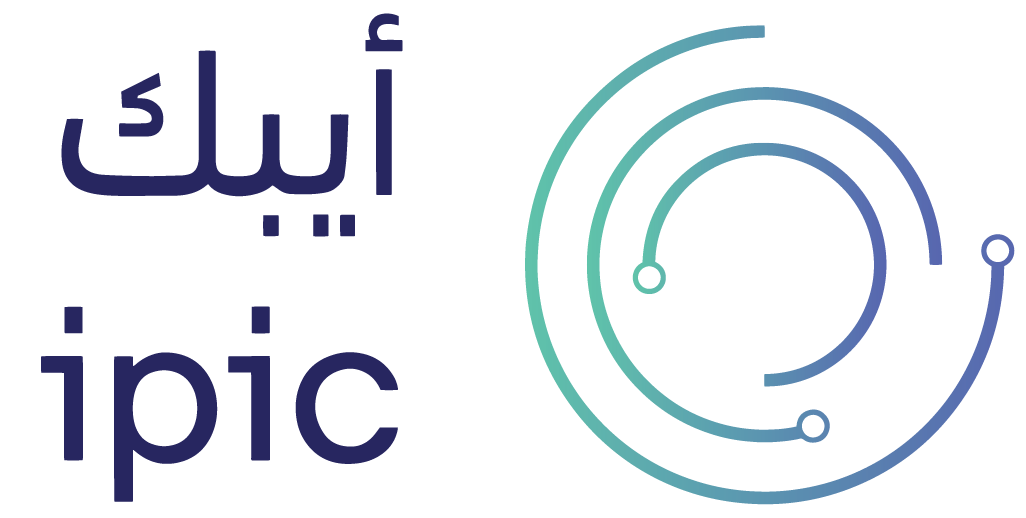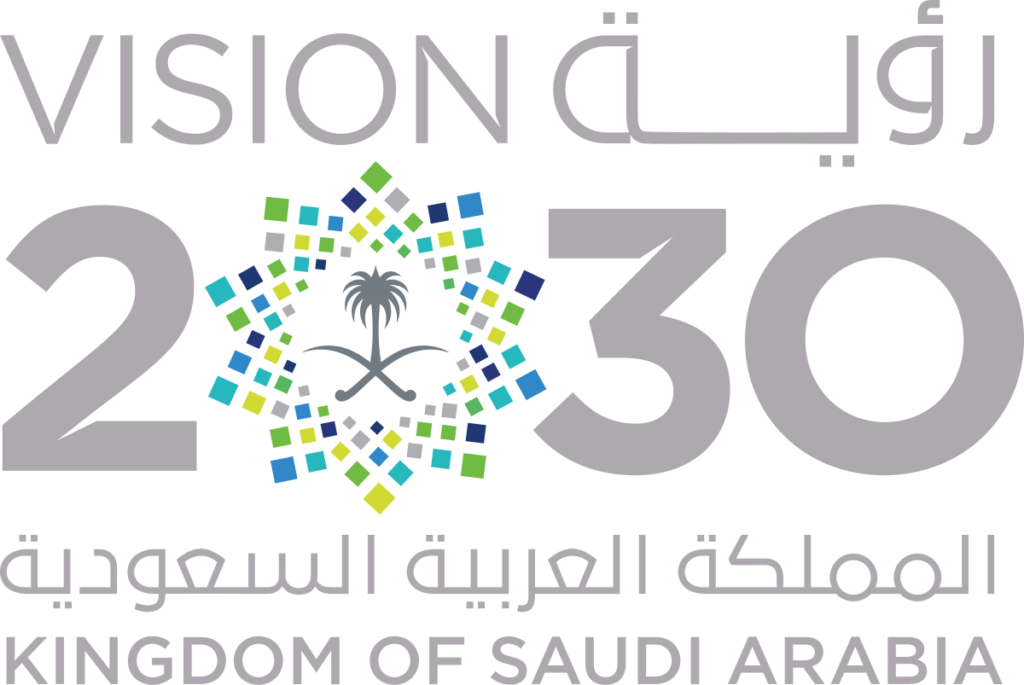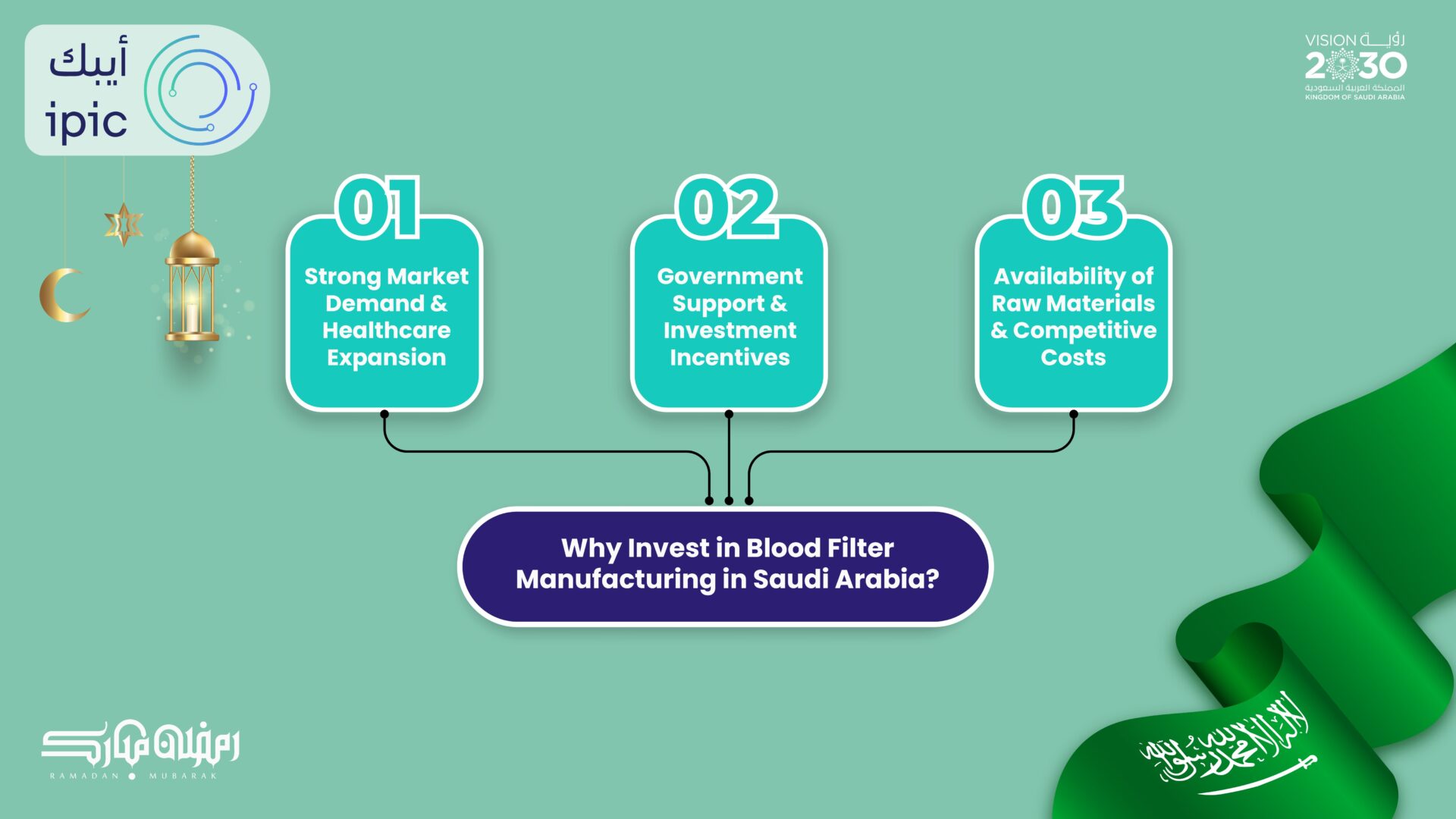The medical devices industry is a rapidly growing sector in Saudi Arabia, driven by the kingdom’s commitment to enhancing its healthcare system under Vision 2030. One of the most promising industrial investment opportunities is blood filter manufacturing, a critical component in life-saving procedures like dialysis, blood transfusion, and plasma exchange therapies. This article explores the market potential, investment highlights, and strategic advantages of entering this field.
—
Market Overview: Rising Demand & Growth Prospects
🌍 Global Trends & Market Growth
- ✅ The global blood filter market is projected to grow steadily, fueled by rising cases of chronic diseases like kidney failure and cardiovascular conditions.
- ✅ Adoption of 3D printing and automation is improving scalability and efficiency.
- ✅ Smart blood filters with embedded sensors are emerging as a new trend.
🇸🇦 Saudi Market Outlook
- ✅ Saudi Arabia accounts for 60% of the GCC’s total healthcare spending, positioning it as a key market for medical devices.
- ✅ Over 90% of blood filters used locally are imported, with France, Germany, Japan, and the USA as top suppliers.
- ✅ Government initiatives like Vision 2030 aim to localize medical manufacturing and reduce import dependency.
—
Investment Highlights & Economic Impact
A full feasibility study includes detailed insights on:
- 📌 Investment Size
- 📌 Expected IRR
- 📌 Payback Period
- 📌 Market Size (2035 Projection)
- 📌 Annual Growth Rate
- 📌 Saudi Healthcare Budget
- 📌 Import Dependency
—
Why Invest in Blood Filter Manufacturing?
1️⃣ Strong Demand & Healthcare Expansion
- ✅ Rising cases of chronic diseases drive demand for advanced blood filtration systems.
- ✅ Growing dialysis market requires high-quality filters for patient care.
- ✅ Government investments in healthcare infrastructure create opportunities for local manufacturers.
2️⃣ Government Support & Incentives
- ✅ Financial Support: Government-backed loans covering a high percentage of CAPEX.
- ✅ Employment Incentives: Programs subsidizing salaries for Saudi employees.
- ✅ Export Benefits: 10% preference for local products in government tenders.
- ✅ Competitive Costs: Low electricity tariffs and material costs.
- ✅ Strategic Initiatives: Programs like Factories of the Future boost local production.
3️⃣ Raw Material Availability & Cost Efficiency
- ✅ Key materials like polypropylene (PP) are locally available, reducing supply chain risks.
- ✅ Competitive labor and operational costs compared to global markets.
- ✅ Advanced logistics infrastructure enables regional and global market access.
—
Key Opportunities & Product Development
Investing in a blood filter manufacturing plant unlocks opportunities for products like:
- ✅ Standard Blood Filters – Used in dialysis, transfusion, and surgical procedures.
- ✅ High-Performance Filtration Systems – Critical for advanced blood purification therapies.
- ✅ Smart Blood Filters – Embedded sensors for real-time monitoring and tracking.
- ✅ Custom 3D-Printed Filters – Tailored solutions for specific patient needs.
- ✅ Medical Device Components – Partnerships with global brands for dialysis and infusion systems.
—
Challenges and Mitigation Strategies
Potential Risks
- 🔹 Initial reliance on imported machinery.
- 🔹 Regulatory compliance requirements (SFDA, ISO, and CE standards).
- 🔹 Competition with established global manufacturers.
Mitigation Strategies
- ✅ Government Grants: Reducing CAPEX through incentives.
- ✅ Global Partnerships: Collaborating with international brands for quality assurance and certification.
- ✅ R&D Investments: Leveraging 3D printing and IoT for competitive product innovation.
—
Cost of Doing Business & Incentives
- 📌 Competitive Electricity Rates: Lower operational costs.
- 📌 Labor Costs: Competitive compared to regional peers.
- 📌 Access to Financing: Government-backed loans and grants.
- 📌 Logistics Performance: High-ranked infrastructure for global trade.
—
How IPIC Can Support Your Entry into the Saudi Blood Filter Market
At IPIC, we assist investors in establishing and optimizing blood filter manufacturing plants through:
- ✅ Industrial Feasibility Studies: Market analysis, financial projections, and regulatory compliance assessments.
- ✅ Smart Factory Setup: IoT integration and automation for efficient production.
- ✅ Government Incentive Assistance: Accessing grants and tax exemptions.
- ✅ Supply Chain Optimization: Sourcing materials and export strategy development.
—
Conclusion: A Profitable Medical Manufacturing Opportunity
With robust healthcare sector growth, government support, and rising demand for medical devices, investing in blood filter manufacturing in Saudi Arabia is a strategic choice. By localizing production and leveraging Vision 2030 initiatives, investors can reduce import dependency and capitalize on a growing market. IPIC provides tailored solutions to turn challenges into success.
📩 Ready to invest in Saudi Arabia’s medical devices sector? Contact us to start your journey!



